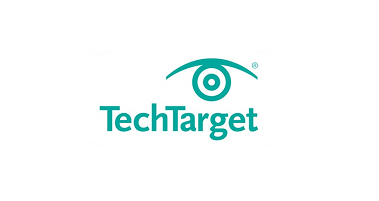What is the Impact of Social Media on Your Marketing
The relationship between a brand and consumer has changed dramatically thanks to the impact of social media.
It has given immense control and power to consumers and large corporations and well-known brands no longer have the so-called upper hand.
Top notch executives and business owners have understood that social media can make or break their business, so they have taken the opportunity to build a presence on social media sites like Facebook and Twitter to do business.
By using social media, companies now can create strategies after they analyze the analytics to understand the target consumer’s demands and likes/dislikes.

Companies have started to give preference to the buyer’s participation in their online marketing.
They are creating polls and user-generated hashtag campaigns, producing appealing podcasts and making videos to promote their brands.
Some hold competitions where the participants are asked to submit or share ideas or content created solely by them; this motivates the buyer to purchase the relevant product or service because now they know that their wishes are being valued.
There are major benefits of using social media to promote your brand. Some of them are:
- The growth of social signals: Your search engine optimization endeavor can be boosted to a large extent by social signals. Remember that the more people talk about your brand on social media, like, follow and recommend your brand page to others, the more chances of your web page to rising up in search ranking.
- Promoting company branding and consciousness: Social media users can always keep the memory of your brand alive in the minds of a vast number of people by sharing your page on their walls. This in the turn will create awareness about your product, which eventually will convert into more followers/customers.
- Do not underestimate word of mouth advertising: People tend to believe familiar people more than descriptions or reviews of your goods on your webpage. If you keep your current customers satisfied and happy, ultimately they will be the one who will promote your brand to their friends and acquaintances.
Social media has become a requirement for digital marketing because research shows that most consumers have a habit of spending a minimum of half an hour per day in various social media sites.
This goes especially for small/medium businesses that are looking to create a niche in the market.
Proper use of social media sites will give businesses the opportunity to offer tough competition to popular brands.
If you want social media to prove beneficial for you, then consider implementing the following:
- Clearly define your business goals.
- Use analytics and insights to discover your audience demographics, preferences and activities.
- Taylor your message to your audience so that when you tell your story, it is relevant to the people you want to reach. Your message can include text, images and video.
- Optimize your posts to boost SEO and link to relevant, optimized landing pages on your website to drive traffic.
- Use social media as a listening tool. Listen. Respond. Repeat.

It is true that well-written content will take you a long way but chances are that most of your customers are working professionals or just plain busy with tons of deadlines.
In that case most of them will surf social media sites when they get a break; for example while standing in line after grocery shopping, while watching TV, etc.
As a result most wouldn’t want to read stuff, instead they would want to view an image, which will take a minimum amount of time.
If you include images to market your brand, it is a guarantee that you will be able to attract more people towards your brand since images tend to engage people more than text.
Findings and Managerial Implications: After conducting extensive research, it was found that consumer’s inline ratings about goods (books; Amazon) or services (hotels) are not solely based on their experience with the particular brand but it is also dependent on other online ratings.
Some companies reveal the demographic features of their goods/services while others hide the same. Whatever may be the case, know that this has a huge influence on a customer’s desire to purchase and see the value of the brand.
One can choose to hide or disclose depending on two factors, a) if the brand’s evaluation is built solely on itself or other competing brands are taken into account b) they are built of existing customers and their relation with potential buyers.
If we take products such as DVD players, it can be seen that their online ratings determine the increase/decrease in sales.
Another interesting fact which came to light was that no product exists separately.
Products which are related to each other create an online virtual network due to their influence on each other’s sales.
There has been a report on display about third party product reviews (TPRs) playing a crucial role for investors who increase their expectations regarding a new product’s potential sale.
Thus firms should focus on TPRs and pursue them aggressively so that those reviews can help in developing their products further and creating firm value.
In case there are negative TPRs, make sure to increase your advertising in the social media sites, as the latter will help in reducing the damage.
The Multifaceted, Contingent Impact of Social Media: Online reviews and ratings influence various things, both offline and online like the conversion rates of consumer purchases, evaluations of brands, valuation and performance of the firm, consumer ratings, etc.
The outcome based on reviews given by customers online and performance ratings are supposed to be contingent on characteristics of the firm, their own brand and the consumer.
Are you still skeptical about the usage of social media for your business?
- Social media makes it easier to get to know your audience. Tools like Facebook Insights help you to know the dominant languages spoken among your target audience besides other specifics like age and gender. You can use this knowledge to your best advantage and create/modify product messaging to gain a healthy return on investment.
- Geo targeting helps you to reach a specific audience depending on their location. If you would like to send a post to people speaking French in Canada, then this is an effective tool for you.
- On social media sites, you receive instant feedback. Create a platform here where customers can file complaints and talk about their grievances if they have any while using your product. The reviews provided by customers are of immense help too as they motivate you to perform better and make quality products. This is much more practical and convenient than getting calls from dissatisfied customers.
- Hootsuite helps you to create search streams, which will give you insight about your competitors. This kind of knowledge gives you an edge over your competitors because now you can make effective business strategies based on what the competition is doing. (Do this sparingly as you want to focus on what separates you from the rest)
- Content can be shared much faster in social media. With just a click, your brand reaches out to millions of people out there. But keep in mind that you need to entice and allure your audience with good content so that they are interested to share your content with their connections.
- Creating brand awareness and reaching out to a wider audience is possible only with social media because here you will get all sorts of people from a stay at home mom to a working professional to entrepreneurs. Traditional advertising methods can be very expensive and there is no guarantee that the return will be fruitful. Many businesses hire community managers whose main job is to act as a mediator between the brand and the customer in social media platforms. This helps one to understand and analyze everything related to their audience and product, and make changes accordingly.
Measuring the impact of social media on business is crucial if you want to establish the true return you achieve on the money you’ve invested.
Like any other aspect of your business, you want to keep track of how your campaigns perform to really appreciate the impact they can have on your business.
Here are a few ways you can track your social media marketing strategy:
Specific goals
Like with all strategies, start by coming up with a set of goals that you want to achieve. At the end of the week or month have a look to see how you’ve performed and review the actions that got you there.
Keep in mind that you’ll need to focus on the metrics that really matter to your business (KPI’s).
If you sell something online, an increase in sales may matter more than how many people convert as a blog subscriber.
See if the metrics are valid
Sooner or later your social media campaign will focus on how the visitors are interacting with what you post and share. If you post something, do a lot of people comment on it or like it?
If so, what are they saying?
Keeping a track of these things will allow you to judge ‘engagement’ and this is a valid metric for social media.
Customer interviews and positive reactions to product launches can all be picked out as valid metrics.
Leading indicators
A leading indicator is one that shows you where things are likely to go in the future.
You have to keep an eye on them to see the results of your strategy materialize.
Pick a few metrics like the engagement, likes, click-through rate and page views to see how sales are likely to tick up in the near future.
Create a dashboard
We’ve pointed out a lot of metrics in all these points above, but you may need to collate all the data in one place if you really want to use it.
Try to create a dashboard to keep track of all the elements of your strategy.
Having all things in one place will not only help you make quick decisions, but better decisions.
Benchmark your work
The only way to see if you are moving forward is to set a starting point. Pick a meaningful benchmark to assess how well the social media campaign is doing.
The benchmark could vary depending on the goal: sales, lead conversions, organic traffic, brand awareness, etc.
Experiment
The A/B test is one of the most popular tests on the Internet and there are subtle ways you can pull it off on social media too.
Try to test different ways to post the same thing and see which one gets a better response.
Maybe the one with the shorter title is clicked on more often or the photo of your product is an eye catcher.
Use more of what works and less of what doesn’t, but always keep experimenting to find out both.
Put some money into it
Measuring the impact of your investment in social media is almost as important as marketing on social in the first place.
The budget doesn’t need to be large, but put some time and effort into finding out the tools that can help you see the data in a new light and make changes to your strategy quickly.
This could include hiring out an agency to partner with, hiring dedicated staff to take care of it for you or getting an expert to create a model from scratch.
Some engineering or social media experts may be able to build you models that are predictive.
They analyze what has happened and tell you what is likely to occur. These models are incredibly useful when it comes to preparing for the future and running a successful, sustainable campaign.
This article is by no means exhaustive.
It doesn’t cover everything you need to know about social media, but it does tell you all the essentials of social media marketing and getting more inbound business.


